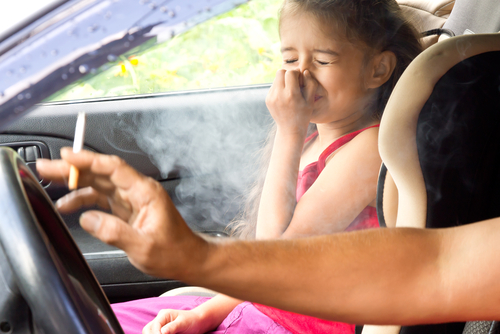#ECFS2018 – Tobacco Smoke Exposure Greatly Speeds Loss of Lung Function in Children with CF, Study Reports

Exposure to tobacco smoke is a key contributor to worsening lung function in young children with cystic fibrosis (CF), researchers report in a study that highlights both the importance of routine checks of lung function in children, and smoking cessation programs as a part of CF care.
The study’s results were in oral presentation at the 41st European Cystic Fibrosis Society (ECFS) Conference running June 6-9 in Belgrade, Serbia, and titled “Impact of tobacco smoke exposure on pulmonary function in paediatric cystic fibrosis patients.”
Researchers at the University of Alabama at Birmingham evaluated the impact of tobacco smoke exposure and poorer socioeconomic status on early evidence of lung function decline in CF patients.
Retrospectively, they analyzed the records of 145 children at age 6, and 87 who were age 11. All were being treated at the CF Center of the Children’s of Alabama.
About 28% of these patients reported being exposed to tobacco smoke — and an analysis of their lung function, as measured in forced expiratory volume in one second (FEV1%) showed a significantly lesser amount of air they were able to forcibly and quickly exhale.
Six-year-old patients had a FEV1%, a measure of lung function, that was 6.6 points lower than CF patients of the same age who were not exposed to tobacco smoke. Such evidence of tobacco-related lung worsening was even more pronounced in 11-year-olds, whose FEV1% was 12.8 points lower than same-age patients.
Low household income — below $30,000 a year — and paternal education — fathers who went never went behind high school — also contribute to poor lung function in children at both ages.
By age 11, however, tobacco smoke exposure was the only “independent” factor that most “significantly associated with lung function decline” in children, the study found.
“Tobacco smoke exposure is the main contributor to diminished lung function at age 6, with doubled negative impact at age 11,” the researchers wrote. “These findings emphasize the importance of tobacco smoke exposure as an addressable modifier of CF lung disease.”
They also suggested that data on tobacco smoke exposure should be routinely collected by clinical care teams in order to promote smoking cessation strategies. This should be a priority in CF clinical practice “as a fundamental aspect of CF care,” the study said.
The study did not distinguish how these children were exposed to tobacco smoke.







